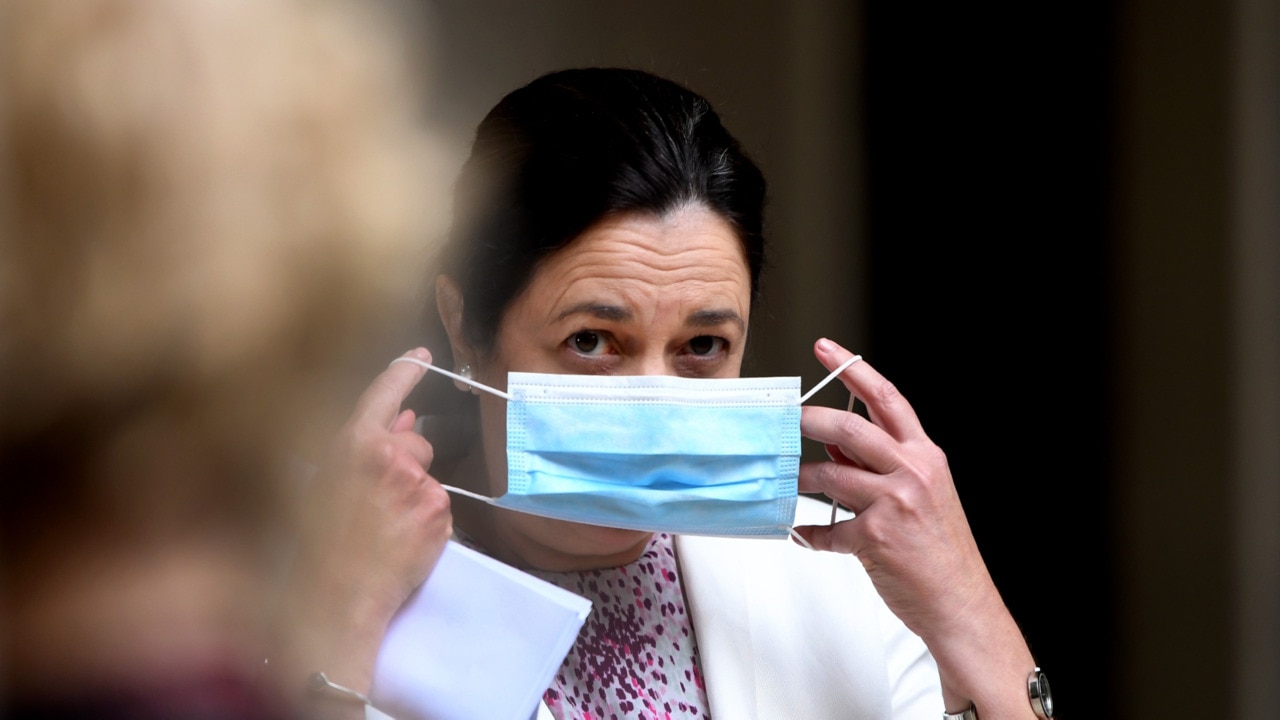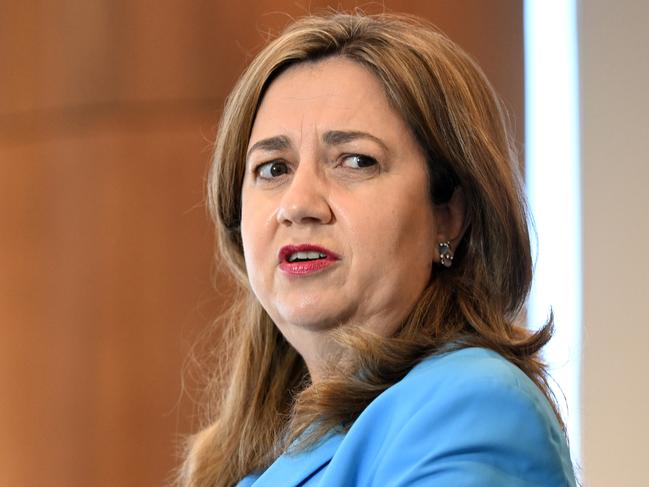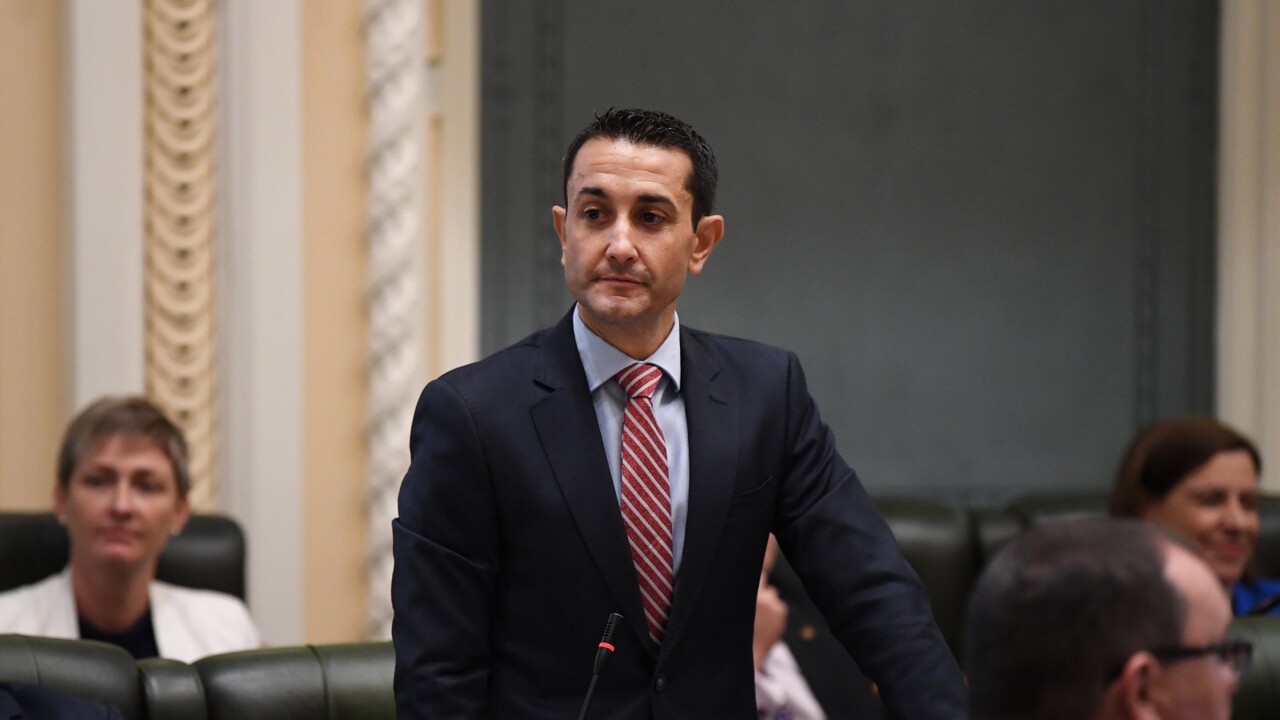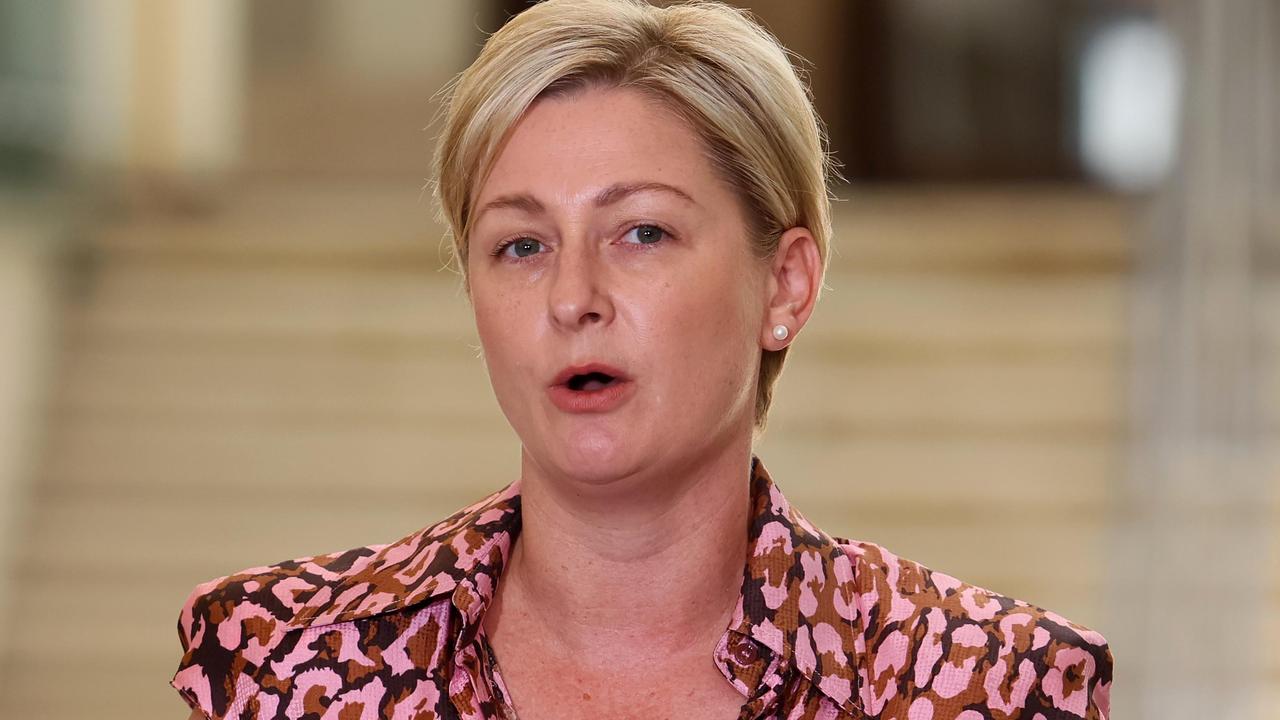Qld integrity crisis: Architect of Act backs independent probe
The architect of Queensland’s integrity laws has backed an independent review into the State Government’s checks and balances.

QLD Politics
Don't miss out on the headlines from QLD Politics. Followed categories will be added to My News.
The architect of Queensland’s integrity laws has backed an independent review into the State Government’s checks and balances, warning it is crucial to maintain public trust.
Howard Whitton, who was the principal architect of the original Integrity Act, joined various Opposition, crossbench and other expert calls for a review, but Premier Annastacia Palaszczuk resisted any inquiry, simply asking Queenslanders to trust her.
Ms Palaszczuk defended stunning revelations published in The Courier-Mail this week by dispatched state archivist Mike Summerell, including that he thought his personal integrity had cost him his job and that public servants and politicians were not accountable or transparent.
The lack of action came on a day when:
- Opposition Leader David Crisafulli wrote to Ms Palaszczuk demanding a royal commission of inquiry into systemic and cultural issues in her government, and crossbench MPs backed a review.
- Overworked Information Commissioner Rachael Rangihaeata spoke out about the importance of integrity agencies having appropriate resources and powers necessary to undertake their functions judiciously.
- Mr Summerell predicted nothing would change without significant legislative review and truly independent integrity organisations.
- Two highly respected integrity experts echoed the need for a review.

Disregarding the claims, Ms Palaszczuk said she understood Mr Summerell had raised issues with the Crime and Corruption Committee before he left his role last year.
She said if there were any allegations, people needed to raise them with the CCC as the standing royal commission in Queensland.
Ms Palaszczuk ignored questions about whether she would call a wider inquiry into integrity concerns, repeatedly saying her Government would consider a separate Parliamentary Crime and Corruption Commission recommendation for an inquiry into the CCC.
“I think the people of Queensland know me,” she said.
“They know I work every single day to uphold their values to keep them safe and look after their families.”
Mr Whitton questioned why the Government had not heeded Integrity Commissioner Nikola Stepanov’s repeated warnings that her office was under-resourced and that was unable to carry out her responsibilities properly.
He said there was no need for a royal commission, as problems raised did not rise to the seriousness of what preceded the Fitzgerald inquiry.
But he backed a short-term strategic review by an independent panel looking at the Office of the Integrity Commissioner and with broad terms of reference examining the integrity system as a whole.
That could include how legislation is being carried out or interpreted by public servants, and whether they understand their various statutory obligations, including about whistleblower protections.
“We’ve seen enough evidence to see senior public servants don’t do what they’re supposed to do, public servants don’t understand whistleblower protection and public servants don’t get held to account,” he said.
An inquiry might also examine discretionary use of power by senior public officials, he said.

“The Integrity Commission concerns about inadequate resources and interference in that office are worth looking into because public trust demands evidence of the way the system is working to ensure integrity in government, especially at times of high levels of lobbying and development,” he said.
“The suspicion that money talks can kill that trust.”
Peter Bridgman, who authored a 2020 review of Queensland’s state employment laws, said integrity provisions were not “set and forget”.
“Integrity in government is an ongoing issue, it’s something that needs to be attended to constantly and diligently,” he said, adding there seemed to be “energy for change” now.
“There’s an opportunity here for the political domain of government to consider whether the settings we’ve got are the right ones at the moment,” he said.
Ms Rangihaeata, whose office promotes a transparent public service through Right to Information and privacy laws, talked up the need for a properly functioning integrity framework.
“It is important that all these agencies have appropriate resources and powers necessary to undertake their functions judiciously,” she said.
It follows complaints in Ms Rangihaeata’s most recent annual report that her team’s workload was “not sustainable”, and that staff were overworked and burnt out.
Mr Crisafulli said the Premier had “no choice but to agree” to a “Fitzgerald inquiry 2.0”.
Mr Summerell said he was encouraged by the LNP’s idea.
“The fact the Premier made some positive statements around integrity was encouraging, but I don’t believe anything will change without significant legislative review and the creation of truly independent integrity organisations with appropriate powers and support,” he said.
Katter’s Australian Party, the Greens, independent Sandy Bolton and One Nation’s Stephen Andrew all backed an integrity inquiry.
Greens MP Michael Berkman said the government “constantly” put reputation and spin ahead of integrity.
“It’s shameful Queenslanders only get a glimpse of this from senior public servants after they’re pushed out of their roles,” he said.
KAP leader Robbie Katter said the pandemic could “no longer be a smokescreen for the chronic and devastating issues that are festering below the surface”.




